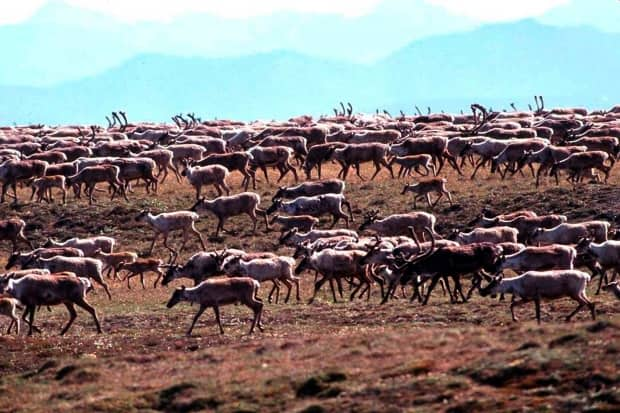'It gives us hope,' says Gwich'in leader as JPMorgan Chase bank ends Arctic drilling funding
Another large American bank says it will no longer fund new drilling projects in the Arctic.
In a news release dated Tuesday, JPMorganChase & Co. said it updated its energy policy which will see a ban on financing new oil and gas development projects in the Arctic. It will also restrict new thermal coal mines and coal-fired power projects in the Arctic.
The bank states the changes are part of its advancement of its sustainable development goals, according to the news release. That includes a target of $200 billion in lending and other financial services for green and sustainable companies and projects, up from an earlier target of $175 billion set in 2017, according to a presentation ahead of its annual investor day.
Chase is ranked the largest bank in the United States and the sixth largest bank in the world by S&P Global Inc.
In December, another American bank, Goldman Sachs, made a similar move to end financing for Arctic drilling projects.
We have a lot more work to do. - Bernadette Demientieff, Gwich'in Steering Committee executive director
Banks have been pulling out even as U.S. President Donald Trump and Senate Republicans attempted to clear the political path to drilling in the region. Internationally, that includes Barclays and the Royal Bank of Scotland, which have said they won't fund exploration projects in the region.
'We're not going to stop,' says Gwich'in leader
It's another win for Indigenous leaders who have been lobbying banks to refuse to fund development in the Arctic National Wildlife Refuge.
"It gives us a lot of hope and we are very grateful to the banks that are listening to the Indigenous voices," said Bernadette Demientieff, executive director of the Gwich'in Steering Committee which represents Gwich'in communities in Alaska and Canada.
"Although they put a lot of money into the Arctic, it just gave us hope that other banks will follow suit."
Demientieff said they want other banks and oil companies to know that they will be holding them accountable.
"As Indigenous people of this land, we are caretakers of it and we're just not going to allow anyone to come in and destroy our homeland — and especially we're not going to sit idly by while it happens," she said.
"I do know that we have a lot more work to do. We're not going to stop now."
Demientieff said leaders will continue to ask at least a dozen more banks to consider the same, including to Citibank, Bank of America, Wells Fargo and other international banks.
She added that drilling affects the local porcupine caribou population which has critical calving grounds in the Arctic.

CBC contacted JPMorgan Chase for an interview. The bank did not confirm whether cultural ties to the land or financial motivations factored into the decision to end funding for Arctic drilling projects.
Some advocates, like the American environmental group, The Sierra Club, said in a news release Monday that the bank has not gone far enough by not implementing restrictions on other oil and gas development, like fracking or oilsands projects elsewhere.
Other climate-change activists also flocked outside JPMorgan's New York headquarters on Tuesday, partially blocking some entrances and demanding that the bank get rid of fossil-fuel clients.
Last week, the global body that regulates shipping, the International Maritime Organization, passed a draft regulation to ban the use of heavy fuel oil in the Arctic by 2024.

